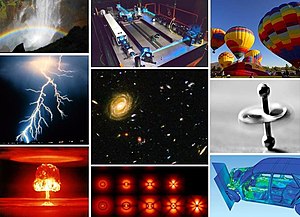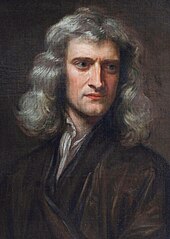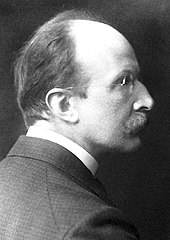| Part of a series on |
| Science |
|---|
Physics (from Ancient Greek: φύσις physis "nature") is a natural science that involves the study of matter[1] and its motion through space and time, along with related concepts such as energy and force.[2] More broadly, it is the general analysis of nature, conducted in order to understand how the universe behaves.[3][4][5]
Physics is one of the oldest academic disciplines, perhaps the oldest through its inclusion of astronomy.[6] Over the last two millennia, physics was a part of natural philosophy along with chemistry, certain branches of mathematics, and biology, but during the Scientific Revolution in the 17th century, the natural sciences emerged as unique research programs in their own right.[7] Physics intersects with many interdisciplinary areas of research, such as biophysics and quantum chemistry, and the boundaries of physics are not rigidly defined. New ideas in physics often explain the fundamental mechanisms of other sciences, while opening new avenues of research in areas such as mathematics and philosophy.
Physics also makes significant contributions through advances in new technologies that arise from theoretical breakthroughs. For example, advances in the understanding of electromagnetism or nuclear physics led directly to the development of new products which have dramatically transformed modern-day society, such as television, computers, domestic appliances, and nuclear weapons; advances in thermodynamics led to the development of industrialization; and advances in mechanics inspired the development of calculus.
Contents[hide] |
History
As noted below, the means used to understand the behavior of natural phenomena and their effects evolved from philosophy, progressively replaced by natural philosophy then natural science, to eventually arrive at the modern conception of physics.[citation needed]
Natural philosophy has its origins in Greece during the Archaic period, (650 BCE – 480 BCE), when Pre-Socratic philosophers like Thales refused supernatural, religious or mythological explanations for natural phenomena and proclaimed that every event had a natural cause.[8] They proposed ideas verified by reason and observation and many of their hypotheses proved successful in experiment,[9] for example atomism.
Classical physics became a separate science when early modern Europeans used these experimental and quantitative methods to discover what are now considered to be the laws of physics.[10][11] Kepler, Galileo and more specifically Newtondiscovered and unified the different laws of motion.[12] Experimental physics had its debuts with experimentation concerning statics by medieval Muslim physicists like al-Biruni and Alhazen.[13][14] During the industrial revolution, as energy needs increased, so did research, which led to the discovery of new laws in thermodynamics, chemistry and electromagnetics.
Modern physics started with the works of Max Planck in quantum theory and Einstein in relativity, and continued in quantum mechanics pioneered by Heisenberg, Schrödinger and Paul Dirac.
Philosophy
In many ways, physics stems from ancient Greek philosophy. From Thales' first attempt to characterize matter, to Democritus' deduction that matter ought to reduce to an invariant state, the Ptolemaic astronomy of a crystalline firmament, and Aristotle's book Physics (an early book on physics, which attempted to analyze and define motion from a philosophical point of view), various Greek philosophers advanced their own theories of nature. Physics was known as natural philosophy until the late 18th century.
By the 19th century physics was realized as a discipline distinct from philosophy and the other sciences. Physics, as with the rest of science, relies onphilosophy of science to give an adequate description of the scientific method.[15] The scientific method employs a priori reasoning as well as a posteriorireasoning and the use of Bayesian inference to measure the validity of a given theory.[16]
The development of physics has answered many questions of early philosophers, but has also raised new questions. Study of the philosophical issues surrounding physics, the philosophy of physics, involves issues such as the nature of space and time, determinism, and metaphysical outlooks such asempiricism, naturalism and realism.
نظرات شما عزیزان:





